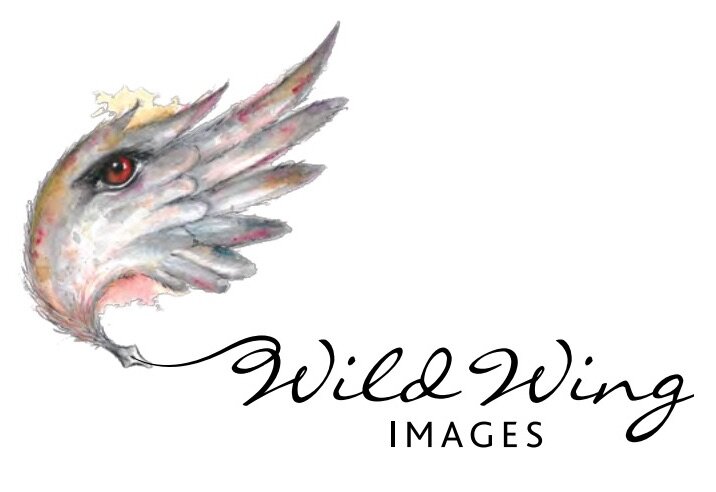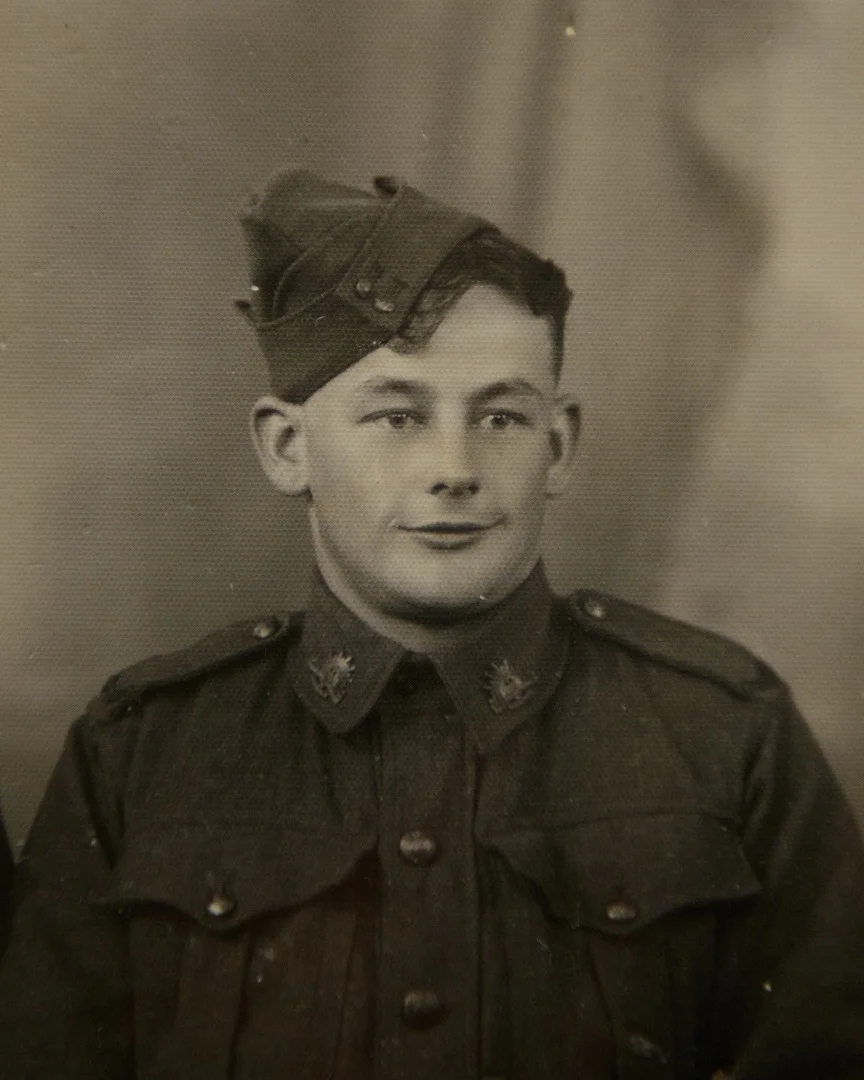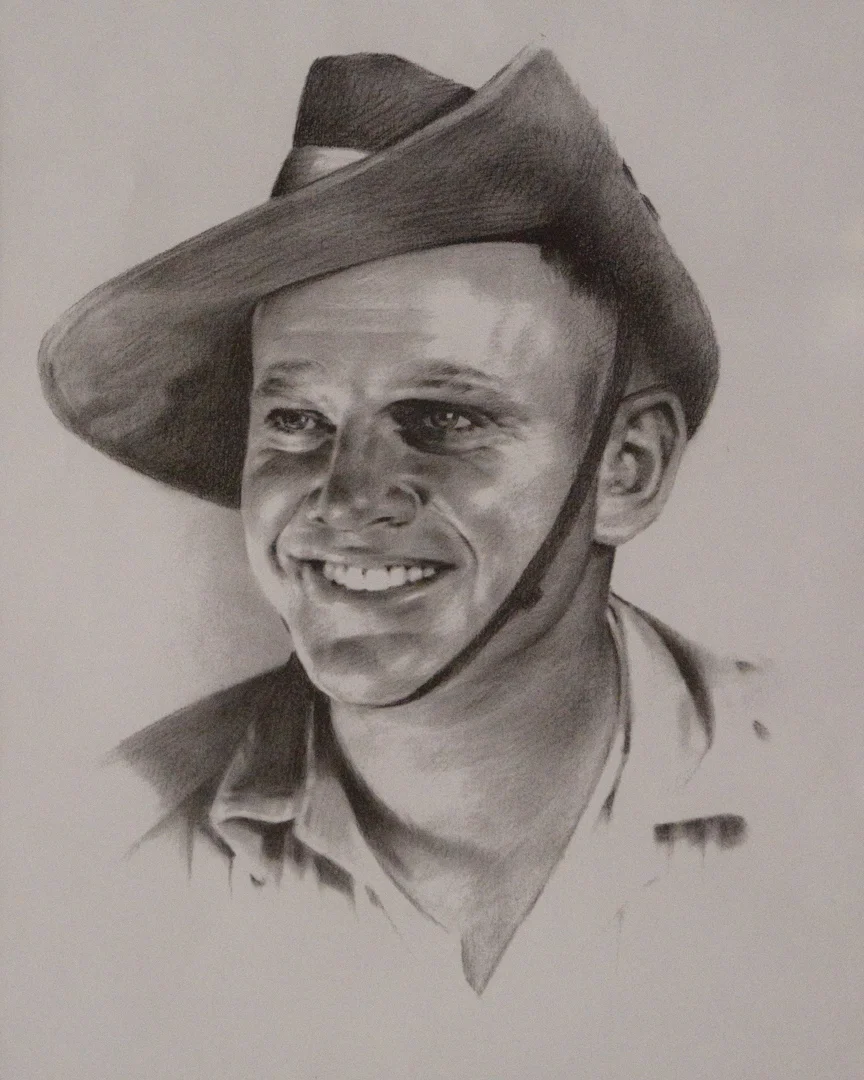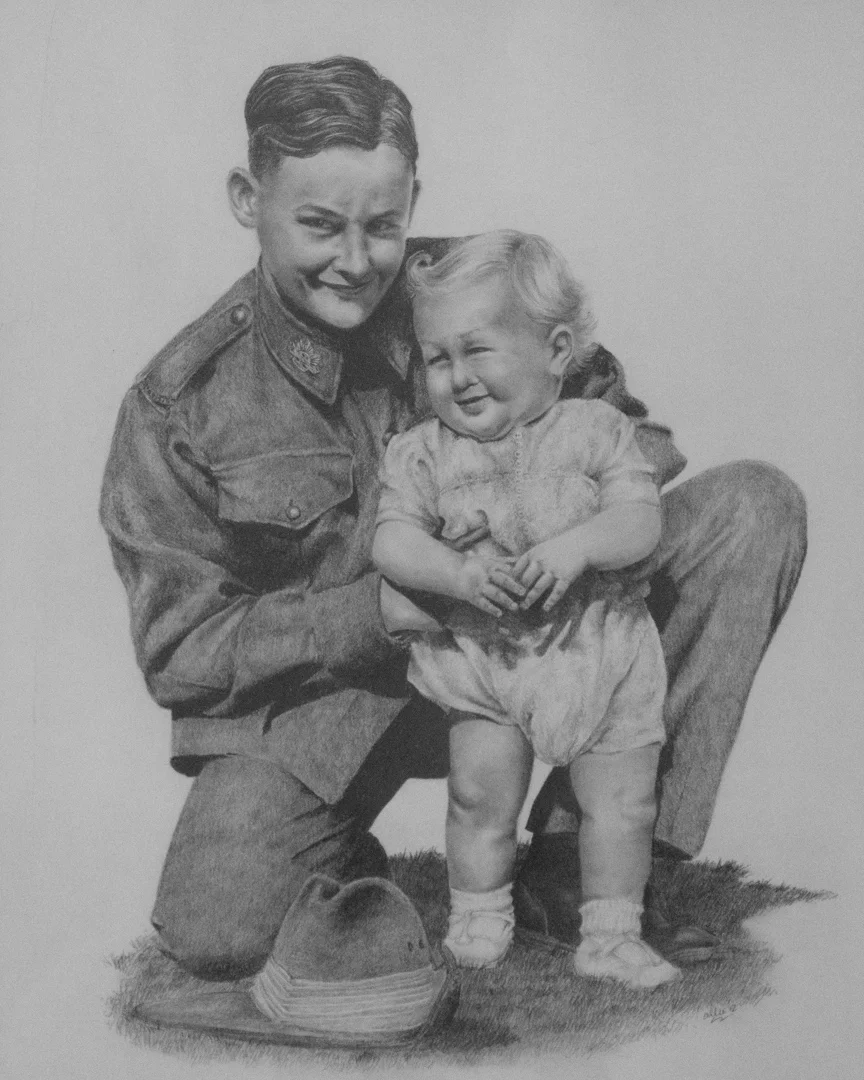A Tribute to my Grandparents
“To acknowledge our ancestors means we are aware that we did not make ourselves. We remember them because it is an easy thing to forget: that we are not the first to suffer, rebel, fight, love, and die.”
― Alice Walker
A few years ago I wrote an E-Book. It is the story of of my Grandfather, Private Kenneth McKay WX3836, my Dad’s Dad. I wrote the book to pay tribute to my Grandfather who fought and died in World War Two, recording his story as I knew it, pulling together family memories, letters home, offial army records, war diary excerpts, newspaper articles and old photographs. The book was written for my family but will be of interest to anyone that had a family member who served in the Middle East Theatre of War specifically, the North Africa Campaign and the Seige of Tobruk fought from April to November 1941. The book is freely available to read and downoad by clicking on the button below.
When Australia joined Great Britain by declaring war on Nazi Germany in September 1939, my Grandfather was a young man enjoying the prime of his life with a beautiful wife and new born baby son. Like almost all men of the right age, he answered the call to arms and signed up to join the Australian Imperial Force (AIF), as an adventurous young soldier eager to see the world and prove himself by fighting for King and Country. It was barely a choice, yet that action would profoundly change his destiny and that of those who loved him. This is a story of courage and love, of the enduring brutality of war and the effects of tragedy on one family. It is the story of a fallen boyish hero with an impish face, pieced together from the fragmented glimpses that have survived the relentless erosion of time. A synthesis of faded memories, decaying letters, battered photographs, family stories, war history and military documentation. There is just enough to establish a sense of who my Grandfather was. It is all that we have.
Ken McKay was barely a man when he gave his life for his country. His letters showed that he loved his wife and baby son dearly. They also showed that he had a wonderful sense of humour and insight. ‘The Soldier’ poem written by Paul Buddee from memories of those who fought beside him show that he left a deep impression on those he met and was loved by his mates and fellow soldiers. The night he was wounded, Ken McKay made it to the wire, he crossed booby trapped minefields, and fought in an intense battle before he was shot in the chest. These actions speak of bravery, courage and loyalty to those fighting with him. Within Ken McKay’s letters is a strong sense of love, for his wife and son, for his Mum, for his Sisters, for his extended family and for his friends and fellow soldiers. He was very young, but, he knew the value of love.
My Grandparents
Images of my Grandparents, faces fading into time. Both of my Grandfathers served in the Second World War and died before I was born. My sense of who they were has come from family memories, stories, letters and old photographs. Ken McKay, my Dad’s Dad joined the 2/28th Battalion and left Australia bound for the Middle East in April 1941. He was killed just four months later at Tobruk in August 1941. Eric Anderson my Mum’s Dad served with the 2/16th Battalion in the Middle East and Papua New Guinea on the Kokoda Track. His service left him with recurring Malaria and severe PTSD. When he returned from the war he was unable to settle and descended into alcoholism which eventually caused his death in 1967. This brave heroic man who fought for Australia died alone in a backstreet of Fremantle after an alcohol fueled pub brawl. He had lost everything!
My Grandmothers
I was extremely lucky to know both of my Grandmothers who in their own unique way were strong, kind, beautiful women. Sylvia Bailey, my Mum’s mum and my Nana had a very difficult life. When her husband returned from the war he had changed, the effects of PTSD and alocohol ruled his behaviour and slowely eroded the loving family man that she married. Sylvia and Eric had eight children of which Aileen, my Mum was the eldest. Four girls, Aileen, Shirley, Lynette and Pam and four boys, Bob, Doug, Colin and Brian. In the dark days after the war Nana struggled to keep her family together in the face of domestic violence and poverty. It was an impossible fight and eventually she made the difficult decision to leave Eric and return to her parents with eight small children in tow. After a few years Nana was given a State Housing home in Armadale to rent. It was a safe haven after many difficult years and a place where the family grew and thrived. Nana loved her family. She loved her Grandchildren. We were always welcome to stay in her fascinating house filled with craft projects, craft supplies and books. Staying with Nana was interesting. She was always doing something. Growing plants, knitting, feeding the chooks, crocheting, china painting, or cooking cakes, buscuits, jam and chutney. I remember bright colours, kindness and activity.
Shirley Wymond my Dad’s Mum and my Nan was also profoundly affected by World War Two. Nan was just a girl when she fell pregnant and married Ken McKay. At tender age she had to navigate the disapproval of both families and face the challenges of married life with a newborn baby. When Ken McKay left Australia in 1941 to fight in the war Nan’s difficulties were compounded as she faced a looming separation from her handsome, young husband at a time when she really needed him. It is difficult to imagine the emotions and anxiety that must have pervaded Nan’s life after Ken left. It is even more difficult to imagine the grief she felt when her childhood sweetheart was killed at Tobruk and her world fell apart. Nan was a soft, gentle, quiet lady but inside she must have had incredible strength, tenacity and endurance to survive those difficulties, marry again and move on happily in life. I never thought of these things when Nan was alive and we never spoke of her first husband. The first inkling I had of Nan’s internal strength was when she was dying. The cancer that overtook her body was ugly, but Nan faced death with unshakeable, quiet dignity and great courage. She did not look back. Nan’s last words of advice will always ring loudly in my mind. They are woven integrally through the fabric of my family. They affect the world in a far broader context. Those words apply to everything. ‘Lissie, you just have to love everyone.’ I loved my Nan, we shared an unspoken bond. I remember kindness, depth and love.





